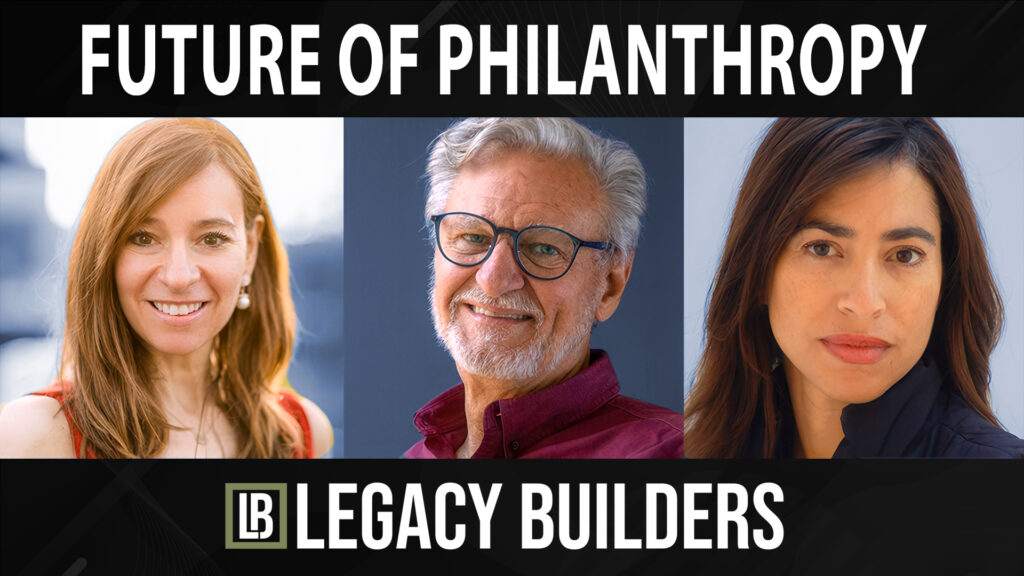The Future of Sustainable Philanthropy

At the Legacy Builders 2025 Conference, three leading voices in philanthropy-Mark Lutz, Pamela Hawley, and Zoe Ryan-came together to share their insights on how to create lasting, community-driven impact in global development. While their experiences and approaches varied, a common theme emerged: true sustainability in philanthropy begins with listening to, investing in, and empowering local leadership.
Mark Lutz: Building Capacity from Within
Mark Lutz, Senior Vice President of Global Philanthropy at Opportunity International, emphasized that working with local leaders is not just beneficial-it is essential. Reflecting on his work in microfinance across Africa, particularly among small-scale farmers, Lutz explained that long-term sustainability depends on shifting power to local organizations and individuals.
One of the most compelling examples he shared was Opportunity International’s model of micro-lending. Rather than sending in foreign experts to distribute and manage loans, the organization creates a hierarchical support system led entirely by local professionals. Executive Directors oversee operations at a regional level, while country-specific directors hire and train loan officers. At the grassroots level, the real change-makers are farmer support agents-farmers themselves, who are equipped with training and technology to provide direct assistance to their peers. This approach ensures cultural relevance, strengthens community trust, and builds lasting economic resilience.
Beyond cost-effectiveness, Lutz highlighted a deeper truth: real impact does not come from external interventions. Instead, progress happens when communities are empowered to define their own success, lead their own solutions, and build systems that endure long after international organizations step away. His perspective underscored a critical shift in philanthropic thinking-from short-term, top-down aid to long-term, community-driven development.
Pamela Hawley: Cultural Listening and Respecting Indigenous Knowledge
Pamela Hawley, founder and CEO of UniversalGiving, built upon Lutz’s insights by stressing the importance of deep, cultural listening. Drawing from her experience managing a global philanthropic platform, she underscored the need to honor and integrate local wisdom into development strategies.
One of the most impactful lessons of her career came while volunteering in Guatemala. American volunteers, focused on efficiency, were baffled by local farmers planting five kernels of corn per hole, believing it to be wasteful. However, the farmers explained that each kernel carried a sacred purpose-one for the marketplace, one for fellow farmers, one for families, one to honor God, and one to bless the land. Removing even one, they warned, would lead to failure. This experience shifted Pamela’s understanding of sustainability-not as a rigid, Western-imposed concept, but as something deeply embedded in culture, tradition, and community values.
Pamela’s key takeaway for philanthropists? Step back, listen, and learn before imposing external solutions. She acknowledged that coming from Silicon Valley, her instinct was often to optimize and streamline processes. But she has since realized that true impact is not about efficiency-it’s about empowerment. As she put it, “This is not your country. This is not your way.” Philanthropy should not be about transplanting external values but rather enfranchising communities and supporting the leadership already in place.
Zoe Ryan: The Power of Deep Listening
Zoe Ryan, founder of The ZAR Agency, further emphasized the disconnect between global philanthropy and local communities. Before the panel, she consulted with a diverse group of Kenyans-both Indian-Kenyans and Black Kenyans-and their feedback was unequivocal: “Nobody listens to us.”
She outlined several critical issues that emerged from these conversations, including the false assumption that formal education is the only valid form of knowledge. Instead, she called for a greater appreciation of indigenous knowledge, community-defined success, and locally driven investment structures. Additionally, she highlighted the need for long-term, multi-year funding commitments-a crucial factor in ensuring sustainable impact.
When asked about solutions, Ryan proposed a bold, yet simple idea: a listening tour. She envisioned taking funders and decision-makers into local communities, not to ask questions, not to lead discussions, but simply to listen. Her concept was met with some skepticism, including from a representative of the Gates Foundation, who insisted that they already “listen.” However, Ryan pushed back-if communities still feel unheard, then something is missing.
Her call to action was clear: Philanthropy must move beyond prescriptive aid models and toward genuine collaboration. This means amplifying local voices, rethinking traditional power dynamics, and co-creating solutions that reflect the lived realities of the people being served.
A Unified Message: Philanthropy Must Shift Power to Local Leaders
As the discussion unfolded, it became evident that each speaker’s perspective converged on a shared truth-philanthropy is most effective when it moves from a model of outside intervention to one of local empowerment.
- Lutz showcased the effectiveness of grassroots capacity-building, demonstrating how locally led microfinance can transform communities.
- Hawley emphasized cultural listening and humility, illustrating the dangers of imposing foreign efficiency models on deeply rooted traditions.
- Ryan exposed the ongoing failure of global philanthropy to truly hear local voices and championed a shift toward deep listening and responsive funding strategies.
Together, their insights presented a blueprint for the future of philanthropy-one that rejects top-down solutions in favor of locally defined, community-driven progress. The path to real, lasting change does not lie in grand strategies devised in boardrooms-it starts with listening, respecting, and investing in the people who know their communities best.
TechCrunch Disrupt SF 2016- Lyra
TechCrunch Disrupt SF 2016- Lyra Alan: Hi, this is Alan Olsen, and I’m here today with Dilun Ho. He is one of the co-founders of Lyra. Dilun, welcome to today’s show. Dilun: Thank you. Alan: So Dilun, give us the inspiration behind Lyra and what you see as the vision for your future here. Dilun: So Lyra basically is…
TechCrunch Disrupt SF 2016- Mokloud
TechCrunch Disrupt SF 2016- Mokloud Alan: Hi, this is Alan Olsen, and I’m here today with Bal Heroor. And we are here visiting about his new company Mokloud. Welcome to today’s show. Bal: Thanks Alan. Alan: So can you tell me about the vision for your company and why you got it started? Bal: Sure, so Mokloud is an…


